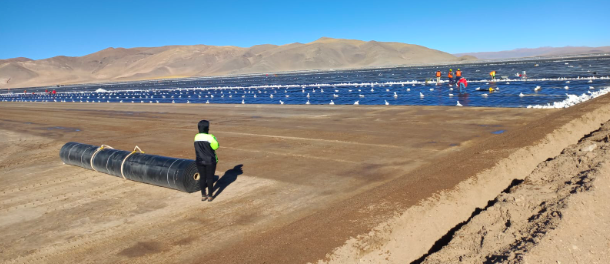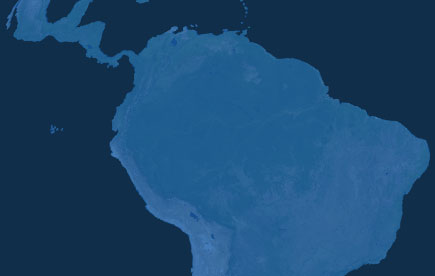Latin America Advisor
Energy Advisor
A Publication of The Dialogue
Can Latin America Find Better Ways to Develop its Lithium?
 Lithium’s demand is growing, though its extraction is controversial. Close to two-thirds of the world’s lithium reserves are located in the “lithium triangle” of Argentina, Chile and Bolivia. A lithium project in Argentina is pictured. // File Photo: Argentine Government.
Lithium’s demand is growing, though its extraction is controversial. Close to two-thirds of the world’s lithium reserves are located in the “lithium triangle” of Argentina, Chile and Bolivia. A lithium project in Argentina is pictured. // File Photo: Argentine Government.
The global transition to green energy has made lithium one of the most sought-after metals. The price for lithium carbonate soared in 2022, from a yearly average of some $14,000 per metric ton to more than $80,000. Close to two-thirds of the world’s lithium reserves are located in the “lithium triangle” of Argentina, Chile and Bolivia, For Argentina in particular, as the country battles crippling inflation, lithium exports could provide a lifeline. What type of lithium policy is needed to generate greater foreign investments while maintaining control over the resources, and what obstacles exist to the development of the industry? Should the lithium triangle countries cooperate? What environmental impact can lithium mining lead to?
-
Javiera Barandiaran, associate professor and graduate director in the Department of Global Studies at the University of California, Santa Barbara: “The climate crisis is a crisis of consumption and economic activity; today’s lifestyles of the wealthy are simply unsustainable. The obstacle facing the lithium industry is this: treating lithium or electric vehicles as strategic commodities to compete over and sell to those who can afford them reproduces the same extractivist and growth-oriented policies that brought about this existential crisis. The ‘lithium triangle’ concept situates these territories within a violent, unequal and center-periphery geopolitics of the past that further erases from our official records memories of a wilder, more biodiverse planet. Lithium mining’s environmental impacts barely register in official records, such as…”
Read More
Top News
Puerto Rico to Privatize Power Generation

Petroecuador Workers Protest Over Salaries
Complete editions of the Energy Advisor are delivered weekly to members of the Dialogue's Corporate Program and other subscribers. Sign up below for a free complimentary preview subscription.
About the Energy Advisor
A sister publication of the Inter-American Dialogue’s daily Latin America Advisor, the weekly Energy Advisor captures fresh analysis from business leaders and government officials on the most important developments in oil and gas, biofuels, the power sector, renewables, new technologies, and the policy debates shaping the future of energy in the Western Hemisphere and beyond. To subscribe or for more information, contact Erik Brand, publisher of the Advisor, at ebrand@thedialogue.org.
Subscribers See all














Staff
Erik Brand
Publisher
P. 202.463.2932
E. ebrand@thedialogue.org
Gene Kuleta
Editor
P. 202.463.2920
E. gkuleta@thedialogue.org
Lara Kovandova
Reporter
P. 202.463.2936
E. lkovandova@thedialogue.org





















